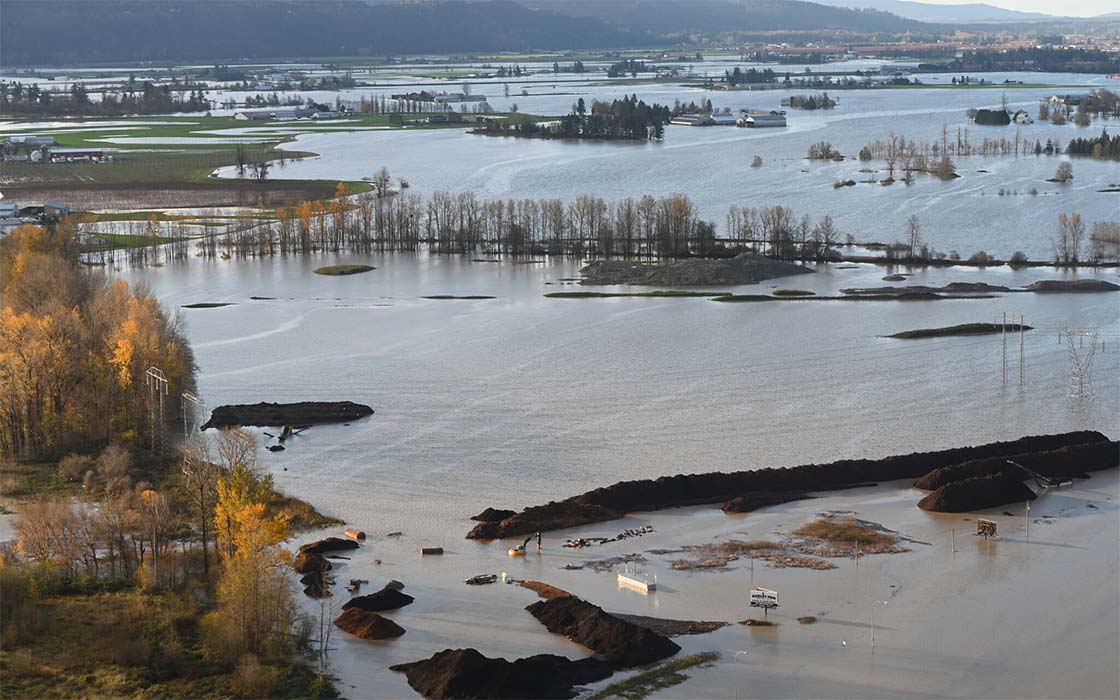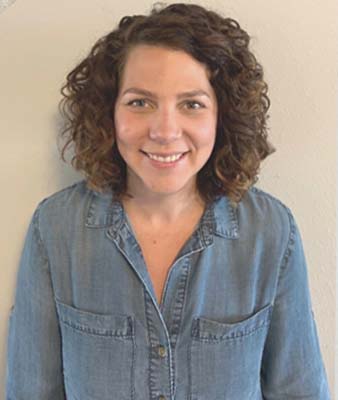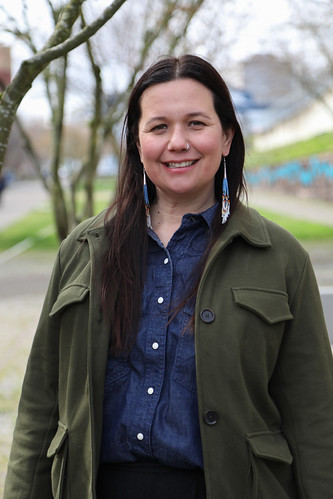
Grant Funds Innovative Indigenous-Centered Study Abroad
This Section's arrow_downward Theme Info Is:
- Background Image: ""
- Theme: "light-theme"
- Header Style: "purple_dominant"
- Card Height Setting: "consistent_row_height"
- Section Parallax: "0"
- Section Parallax Height: ""
The U.S. Department of State has awarded UW Tacoma a $50,000 IDEAS (Increase and Diversify Education Abroad for U.S. Students) grant. The funding will be used to create a study-abroad program geared toward Native and Indigenous students as well as students who are interested in working with Indigenous communities.
Of the 34 colleges and universities receiving IDEAS grants in 2023, UW Tacoma’s is the only award specifically aimed at serving the Indigenous community. It is also the first of what the IDEAS Program is calling a “consortium grant,” meant to build study-abroad capacity across multiple institutions (more on that below).

Data from NAFSA: Association of International Educators shows that Native and Indigenous students participate in study-abroad programs at lower rates than other students. For 2020-21 nationally, 0.4% of students who studied abroad identified as American Indian or Alaskan Native. In 2018-19 (the last year complete information is available), only 0.65% of UW Tacoma students who studied abroad identify as American Indian or Alaskan Native, slightly better than the national average, but a considerably smaller proportion than the 1% of all UW Tacoma enrolled students who identify as Native American.
The program is still in the planning phase, but a few specifics have already been worked out. “This program will look at how Indigenous communities in other countries are dealing with climate and environmental issues compared to what’s happening in the South Sound,” said Courtney Kroll, Associate Director for Study Abroad in the UW Tacoma Office of Global Affairs.
Students will travel to Abbotsford, British Columbia, home of the University of the Frazier Valley. “The institution [Frazier Valley] has a really strong connection to the Stó꞉lō people on whose land the university resides,” said Kroll.
The decision to stay in the Pacific Northwest was intentional. “We wanted to keep costs down,” said Kroll. “Also, for Indigenous students, time can be a barrier. There are family, cultural, community, and in some cases ceremonial ties, so time is a precious commodity and we wanted to honor that.”

Associate Professor Danica Miller is helping with the project. “We’re bringing them [students] to a Native space, an Indigenous space in a different country,” she said. “This is a cross-cultural Native exchange.”
One innovative aspect of this study abroad project is that it involves a collaboration with Green River College and Tacoma Community College (TCC), and is funded as a “consortium grant” by the IDEAS Program. Students from Green River and TCC can take part in the course. “Doing it this way allows us to increase access for Indigenous students,” said Kroll.
The partnership also helps meet a need. “We lose a lot of Native students in the transfer process,” said Miller. “I’m hoping we will be able to create pathways for our Native students from community colleges to four-year institutions.”
There is a lot that needs to be decided, including how to design a program that meets the credit requirements for all three schools. “The program won’t take place until the summer of 2025,” said Kroll.
In the meantime, Kroll, Miller and colleagues from Green River and TCC are building connections with local students and their families. They are also working with local tribal communities and organizations, including the Washington State Community and Technical Colleges American Indian Indigenous Studies Advisory Board (WCAAB), to develop Indigenous-centered curriculum.
As part of the grant, Kroll, Miller and others will create resources about study abroad that can be shared with the larger Native and Indigenous community. Students who take part in the program will also get assistance applying for scholarships to help cover the costs of participation.
The IDEAS funding is for two years. “The hope is that we will be able to develop a sustainable model that will allow us to offer this program on a regular basis,” said Kroll. An Indigenous-centered study abroad will take students to new places and possibly expose them to new ways of understanding the world. "By offering a program that is tailored to the interests and needs of a specific student population, we hope to be able increase the number of Indigenous students who study abroad and also begin an exchange of Indigenous cultural knowledge,” said Kroll.
Recent news
Main Content
Gathering Strength
News Tags on this arrow_upward Story:
- None
Main Content
UW Tacoma Enrollment up 4% for Autumn 2024
News Tags on this arrow_upward Story:
- None
Main Content
Celebrating First Gen
News Tags on this arrow_upward Story:
- None



